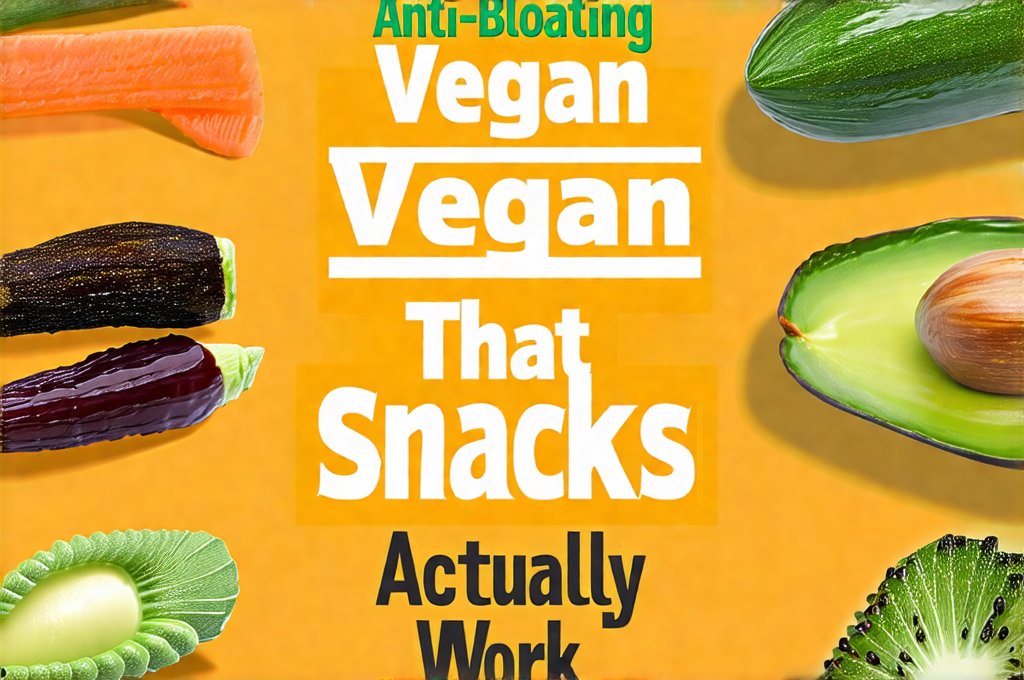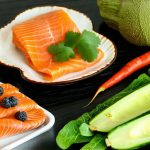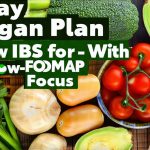Bloating is an incredibly common issue, affecting millions of people worldwide. It’s not usually a sign of anything serious, but it can be uncomfortable and disruptive to daily life. Many factors contribute to bloating – everything from the speed at which we eat to stress levels and underlying digestive sensitivities. One often overlooked aspect is diet; what we consume plays a massive role in how our gut feels. For those following a vegan lifestyle, navigating anti-bloating snacks can sometimes feel tricky, as common “healthy” options aren’t always well-tolerated by sensitive systems. This article will explore delicious and effective vegan snack choices designed to minimize bloating and promote comfortable digestion, moving beyond restrictive diets and embracing nourishing foods.
The challenge with finding truly anti-bloat snacks isn’t necessarily about eliminating entire food groups (though identifying personal sensitivities is key), but rather focusing on ingredients that are easily digestible and don’t contribute to gas production. Many vegan staples – beans, lentils, cruciferous vegetables like broccoli and cabbage – are incredibly nutritious but can also cause bloating in some individuals due to their high FODMAP content or fiber levels. We’ll focus on strategies for incorporating these foods thoughtfully and introducing gentler alternatives that support a happy gut, leading to less discomfort and more energy throughout your day. This isn’t about deprivation; it’s about informed choices and finding what works best for you. For those seeking tailored dietary plans, exploring resources like anti-bloating meal plan can provide valuable guidance.
Understanding Bloat & Vegan Diets
Bloating occurs when excess gas builds up in the digestive system. Several factors can contribute: rapid eating (leading to swallowed air), food sensitivities, imbalances in gut bacteria, or consuming foods high in FODMAPs – Fermentable Oligosaccharides, Disaccharides, Monosaccharides and Polyols. These are short-chain carbohydrates that some people have difficulty digesting, leading to fermentation in the gut and subsequent gas production. A vegan diet, rich in plant-based foods, can sometimes inadvertently include a higher concentration of these compounds. However, it’s important to remember that not all plant-based foods are problematic, and many are incredibly beneficial for digestive health. The key is mindful selection and portion control.
Vegan diets naturally emphasize fiber intake, which is fantastic for overall health but can contribute to bloating if introduced too quickly or consumed in excessive amounts without adequate hydration. Gradually increasing fiber intake and ensuring sufficient water consumption are essential steps in minimizing discomfort. Furthermore, many processed vegan snacks contain ingredients like artificial sweeteners or gums that can also trigger bloating in sensitive individuals. Focusing on whole, unprocessed foods is generally the best approach. The misconception often lies in believing a plant-based diet automatically equates to a bloat-free existence; it requires understanding how different foods interact with your body and making informed choices accordingly. If you suspect underlying digestive issues, considering digestive tests can offer valuable insights.
Finally, stress significantly impacts digestion. When stressed, our bodies divert energy away from digestive processes, potentially leading to incomplete food breakdown and increased gas production. Incorporating stress-reducing practices like mindfulness, yoga, or even just deep breathing exercises can complement dietary changes for a holistic approach to bloat management.
Vegan Snacks That Soothe Digestion
Several vegan snacks are naturally gentle on the digestive system and can help reduce bloating. Consider options like:
- Oatmeal with berries: Oats contain soluble fiber which aids digestion, while berries provide antioxidants without excessive FODMAPs.
- Rice cakes with avocado: Rice is easily digestible, and avocado offers healthy fats and potassium.
- Small handful of walnuts or macadamia nuts: These nuts are lower in FODMAPs compared to others.
- Ginger tea: Ginger has anti-inflammatory properties and can help soothe digestive discomfort.
- Cucumber slices with a sprinkle of dill: Hydrating and easily digestible, offering a refreshing snack option.
Beyond these individual snacks, preparation methods matter. Soaking nuts before consuming them reduces phytic acid, making them easier to digest. Similarly, properly cooking beans and lentils (and potentially soaking them beforehand) can minimize gas production. Avoiding combinations of high-FODMAP foods in the same meal or snack is also helpful for identifying triggers. Listen to your body; what works for one person may not work for another. Experimenting with different options and tracking your responses will help you identify the snacks that best support your digestive health. Learning how to choose snacks that won’t upset your stomach is a key skill for those with sensitivities.
Identifying Your Bloat Triggers
Pinpointing specific food sensitivities is crucial. One effective method is an elimination diet, conducted under the guidance of a healthcare professional. This involves temporarily removing potentially problematic foods (such as high-FODMAP options) and then reintroducing them one at a time to observe your body’s reaction. Keep a detailed food diary documenting what you eat and any associated symptoms.
- Focus on FODMAPs: Pay particular attention to foods known to be high in FODMAPs, such as onions, garlic, apples, pears, stone fruits, wheat, rye, beans, lentils, and certain dairy-free alternatives (like those containing inulin).
- Consider portion sizes: Even low-FODMAP foods can cause bloating if consumed in excessive quantities.
- Monitor for delayed reactions: Symptoms may not appear immediately after consuming a trigger food; they could manifest hours later.
Another helpful tool is breath testing, which can identify intolerances to lactose or fructose. Remember that digestive issues can be complex, and identifying triggers requires patience and self-awareness. Don’t hesitate to seek guidance from a registered dietitian specializing in gut health for personalized support. Exploring herbal remedies can also offer natural relief options.
Hydration & Digestive Enzymes
Staying adequately hydrated is paramount for optimal digestion and reducing bloating. Water helps move food through the digestive system and prevents constipation, which can exacerbate bloating symptoms. Aim for at least eight glasses of water per day, and increase your intake if you’re physically active or live in a hot climate. Herbal teas, like peppermint or chamomile, can also contribute to hydration and offer soothing digestive benefits.
Digestive enzymes are another valuable tool. These naturally occurring substances help break down food into smaller, more easily digestible components. Supplementing with a broad-spectrum enzyme formula that includes enzymes for carbohydrates, proteins, and fats can be particularly helpful if you struggle with digesting certain foods or have diagnosed enzyme deficiencies. Always consult your doctor before starting any new supplement regimen, as they can interact with medications or exacerbate existing health conditions.
Mindful Eating Practices
Beyond specific snacks and supplements, adopting mindful eating practices can significantly reduce bloating. This involves paying attention to how you eat, rather than just what you eat. Slow down your eating pace, chew your food thoroughly, and savor each bite. Avoid distractions like television or phones during meals, as this can lead to overeating and incomplete digestion.
- Eat smaller, more frequent meals: This reduces the burden on your digestive system.
- Avoid lying down immediately after eating: Allow gravity to assist with digestion.
- Practice deep breathing exercises before meals: This promotes relaxation and prepares your body for optimal digestion.
Mindful eating isn’t just about preventing bloating; it’s about cultivating a healthier relationship with food and improving overall well-being. It encourages you to listen to your body’s signals of hunger and fullness, leading to more balanced and satisfying mealtimes. For those looking for specific beverage choices, consider probiotic drinks as part of a holistic digestive strategy. Furthermore, including fermented snacks can contribute to gut health and reduced bloating. And for those late night cravings, explore evening snack options that won’t disrupt your sleep or digestion.


















